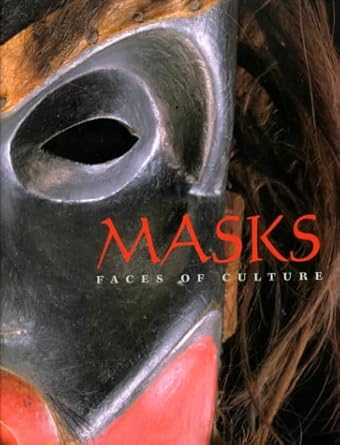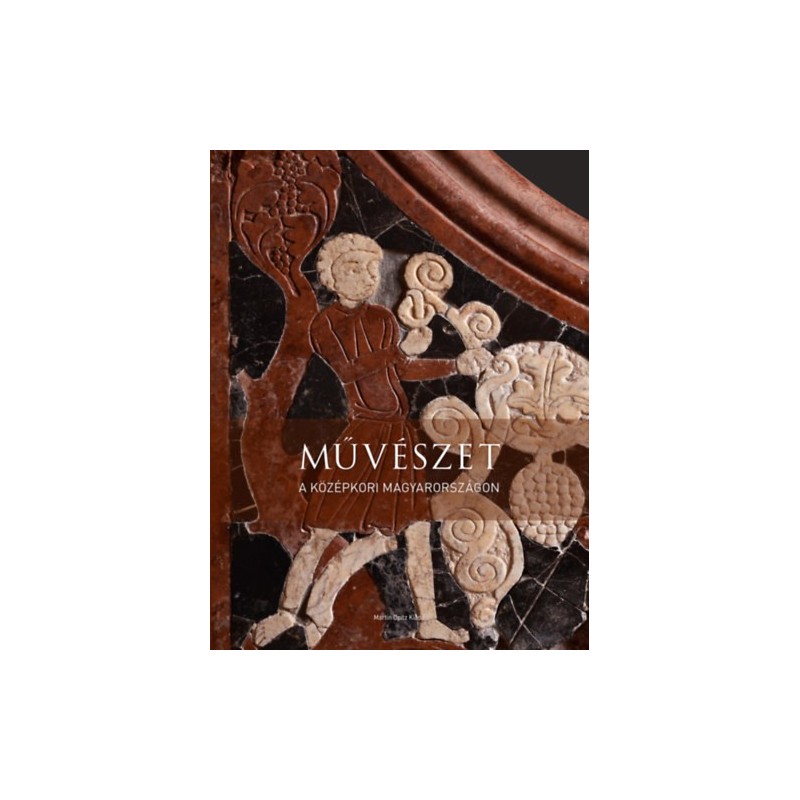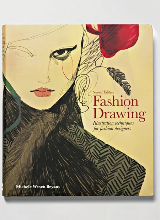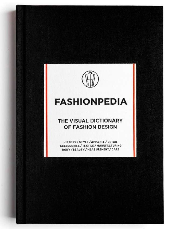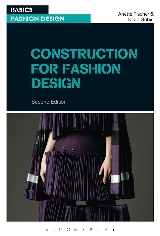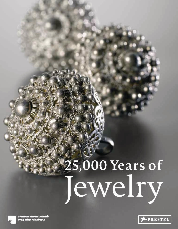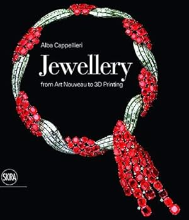Könyvajánlók
Masks : faces of culture
John W. Nunley, Cara McCarty
From Palaeothic times to the present, people have used masks to add power and mystery to religious rituals, warfare and entertainment. This companion volume to the 1999-2000 exhibtion at The Saint Louis Museum of Art provides a cultural history of these artefacts.
tovább >>>
Művészet a középkori Magyarországon
szerk. Xavier Barral i Altet [et al.]
Magyarország középkori művészetét bemutató kötet jelenleg az egyetlen, szemléletében is korszerű, átfogó összefoglalás arról a jelentős értékről, amellyel ez az ország története első felében hozzájárult Európa egyetemes kultúrájához. A kép, amely az olvasó elé tárul, rendkívül sokszínű és sajátos. Jellemző arra a földrajzi és társadalmi helyzetre, amelyben az Árpádok, az Anjouk, Luxemburgi Zsigmond és utódai, különösen Hunyadi Mátyás kormányozták a királyságot. A tanulmányokat és műleírásokat tartalmazó könyv 25 hazai és külföldi kutató összefogásával, nemzetközi szerkesztőgárda koncepciója szerint készült, és első kiadásban angol nyelven látott napvilágot 2018-ban a római Viella kiadó gondozásában. Eredeti célját, amely nemzetközi szakmai közvélemény figyelmének felkeltése volt a magyar művészeti örökség iránt, már betöltötte: tucatnyi pozitív recenzió a világ legrangosabb szakmai folyóiratai igazolták a célkitűzés helyességét. A magyar kiadással egyrészt a hazai közvéleményt, többek között középiskolai tanárokat, tanulókat, a magyar múlt iránt érdeklődő, a műveltségük gyarapítására vágyó olvasókat kívánjuk megszólítani, hasznos és megbízható információkkal ellátni a magyar középkor művészetéről, másrészt nem kétséges az sem, hogy a felsőoktatásban is jól használható, jelenleg ott is hiánypótló kézikönyvet bocsátunk ki.
tovább >>>
Fashion drawing : illustration techniques for fashion designers
Michele Wesen Bryant
Fashion Drawing is a comprehensive, practical guide to fashion drawing for students of fashion design.This second edition features brand new illlustrations reflecting developments in pose, presentation and digital design, plus guidance on creating technical flats.
The book offers step-by-step tutorials showing students how to create fashion drawings for women, men and children, adapt them for different markets.
Illustrated with more than 1000 images from leading designers and illustrators, Fashion Design provides both inspiration and the instruction necessary to allow students to develop their own style for rendering fabrics, textures and effects, from faux fur and metallics to prints, woven and knitted materials.
It ends with an illustrated glossary of garment and fabric details and an extensive resource section
tovább >>>
Fashionpedia : the visual dictionary of fashion design
FASHIONPEDIA is a visual fashion dictionary covering all the technical terms from style to material to production with illustrations and infographics. It encompasses rich, extensive information and yet is so easy to read. Whether you’re an industry insider or a fashion connoisseur, FASHIONPEDIA is all you’ll ever need to navigate the fashion scene.
tovább >>>
Construction for fashion design
Annette Fischer and Kiran Gobin
Construction is the foundation of fashion design; it takes passion and great skill to turn a two-dimensional drawing into a successful garment.
Construction for Fashion Design guides readers through the process, teaching the theory, practical skills and techniques that they need to succeed. It leads readers through the essential stages of creating a garment, from pattern cutting and draping on the mannequin to sewing techniques and haberdashery...
tovább >>>
The visual history of type
Paul McNeil
The Visual History of Type is a comprehensive, detailed survey of the major typefaces produced since the advent of printing with movable type in the mid-fifteenth century to the present day. Arranged chronologically to provide context, more than 320 typefaces are displayed in the form of their original type specimens or earliest printing. Each entry is supported by a brief history and description of key characteristics of the typeface.
This book will be the definitive publication in its field, appealing to graphic designers, educators, historians and design students. It will also be a significant resource for professional type designers and students of type.
tovább >>>
Understanding the world : [the atlas of infographics]
Sandra Rendgen
A visual atlas with information graphics that explain our vast and fragile world
Dazzling in scale, diversity and detail, the world never ceases to open our eyes and captivate our curiosity. Ever since the earliest cave paintings, humans have looked at this Earth that is our home and endeavored to understand it.
This expansive visual atlas presents the most exciting, creative and inspiring ways of explaining the world in information graphics. Divided into five chapters, the book covers the environment, technology, economics, society, and culture to reveal some of the Earth’s greatest intricacies in accessible visual form. Featuring more than 280 graphics, reproduced in large scale including seven fold-out spreads, the collection focuses on the 21st century, but also includes historical masterpieces to put our current situation into perspective.
tovább >>>
Design : the definitive visual history
Angela Wilkes
Discover the history of design with this gorgeous visual celebration of key pieces, movements, and designers, from the Arts and Craft movement to the digital age.
Discover all you need to know about art and design in this definite guide. Design: The Definitive Visual Guide brings a gallery of more than 1200 images, covering every major design movement - from 1850 to the present day...
tovább >>>
The package design book
Julius Wiedemann]
Package design is one of the most dynamic and fast-evolving fields of design today. Featuring over 600 creations from more than 35 countries, this compact edition celebrates extraordinary work from the global packaging design community. Showcasing the winners of the Pentawards from the past decade, the world’s leading packaging design competition.
tovább >>>
25,000 years of jewelry : from collections of the Staatliche Museen zu Berlin
Drawn from the extensive holdings of the Staatliche Museen in Berlin, this collection of jewelry through the ages links cultures and eras to show how the design, wearing, and collecting of personal adornment has evolved over the ages. They range from classic items such as necklaces, rings and earrings to less common items with origins in non-European cultures. The book features jewelry, ranging from the splendid crowns of ancient Greece, gold earrings from Babylon and jewelled collars worn by 13th-century Islamic royalty to more modern pieces such as those contained in the imperial collection of Queen Louise of Prussia, Art Nouveau jewelry designed by Rene Lalique, and work by contemporary designers. This chronologically arranged survey includes numerous brief essays and 400 illustrations with detailed captions, making it an ideal reference for anyone interested in cultural history, the history of jewelry, or the art and craft of jewelry making.
tovább >>>
Jewellery : from Art Nouveau to 3D printing
Alba Cappellieri
The volume presents an extraordinary collection of jewels, jewellers and
international maisons which, from the start of the twentieth century to
the present day, have mirrored the changing taste worldwide. It is a
global journey which takes us from France to Russia, from the United
States to Italy, from Britain to Germany and from the Netherlands to
Scandinavia. From the Art Nouveau masterpieces of Lalique, Vever and
Fouquet to Art Deco elegance and the wonders of Cartier, Boucheron,
Tiffany, Mario Buccellati and Fabergé. From the inventions of Van Cleef
& Arpels and Bulgari in the 1950s to the Dutch avant-garde and the
artist’s jewel of the 1960s, ending with illustrations of up-to-date and
contemporary jewellery design. A brilliant historical-critical essay
introduces a magnificent selection of pictures, designed to be an ideal
gallery of masterpieces of twentieth-century jewellery, accompanied by
technical explanations and an exhaustive glossary...
tovább >>>

